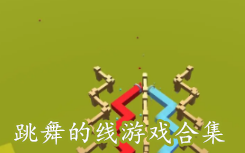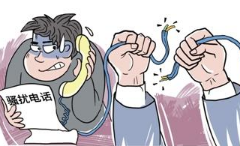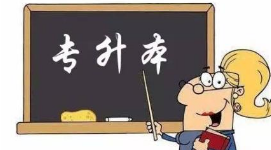外媒认为不该错过的五本中国书
文章导读:不该错过的五本中国书当中国小说家莫言意外荣获2012年诺贝尔文学奖时,中国文学界也随之受到了前所未有的关注。虽然这个人口大国出了像
不该错过的五本中国书
当中国小说家莫言意外荣获2012年诺贝尔文学奖时,中国文学界也随之受到了前所未有的关注。虽然这个人口大国出了像《道德经》和《孙子兵法》这样的名著,但中国书籍在西方出版界的表现仍乏善可陈。幸运的是,西方出版商并未因此而放弃对一些最受喜爱的中国作品的翻译工作。
The surprise announcement last week that Chinese novelist Mo Yan had won this year's Nobel Prize in literature has focused unprecedented global attention on Chinese literature. 'Tao Te-Ching' and 'Art of War' notwithstanding, books from the world's most populous country have tended to get meager play in the Western press. Luckily, that hasn't kept publishers from commissioning translations of some of China's best-loved works.

但在众多的书籍中,尝鲜者该从哪本着手呢?
But with dozens of titles to choose from, where should the intrepid reader start?
为了回答这个问题,“中国实时报”栏目请教了《人民文学》(People's Literature Magazine)英文版杂志《路灯》(Pathlight)的编辑。《路灯》致力于翻译《人民文学》杂志与翻译网站Paper Republic联合出品的中国新小说与新诗歌。以下的五本中国书籍都由《路灯》工作人员力荐,第一本的作者是诺贝尔文学奖得主莫言。
To answer that question, China Real Time turned to the editors of Pathlight, a literary magazine dedicated to translating new Chinese fiction and poetry jointly produced by the translation website Paper Republic and People's Literature Magazine. Below, Pathlight staff recommend four of their favorite Chinese books in translation, starting with one from the new Nobel winner:
《天堂蒜薹之歌》(Garlic Ballads),作者:莫言
'Garlic Ballads,' Mo Yan
在埋头开始完整地阅读一部莫言的小说前,读者若想对其作品风格有所了解,他的短篇小说集《师傅越来越幽默》(Shifu, You'll Do Anything for a Laugh!)也许是一个不错的选择,或者去看看张艺谋根据莫言小说改编拍成的电影《红高粱》(Red Sorghum)。而对于那些热衷于长篇小说的读者而言,《天堂蒜薹之歌》是一个很好的选择。诺贝尔文学奖评委会就曾建议,阅读莫言应当从这部小说开始。
Readers who want to get a taste of Mo Yan before they commit to reading a whole book may want to pick up 'Shifu, You'll Do Anything for a Laugh!, ' a collection of Mo's short stories, or check out Zhang Yimou's film version of the novel 'Red Sorghum.' For those who want to read a full-length novel, the Nobel committee's recommendation of ' The Garlic Ballads' as a first Mo Yan novel is a good place to start.
《天堂蒜薹之歌》曾在卷首引用了一段斯大林语录──虽然莫言在第二版的前言中承认那段话是他自己杜撰的──但这仍引发了公众对他新一轮的批评。此前,莫言就曾因未替同是诺奖得主却身陷囹圄的刘晓波及其他异见作家大声疾呼、出言相助而受到指责。
'The Garlic Ballads' opens with a quote attributed to Stalin -- though Mo admitted to making it up in the preface to the second edition of the novel -- that takes on new resonance in the light of recent criticisms of Mo for not being more outspoken in his support of imprisoned fellow Nobel laureate Liu Xiaobo and other politically active writers:
一直以来,小说家都试图与政治保持距离,但小说本身却永远无法脱离政治而单独存在。小说家都极度关注人类的命运以至常常忽略了自己的命运,他们的悲剧也因此而生。
Novelists are forever trying to distance themselves from politics, but the novel itself closes in on politics. Novelists are so concerned with 'man's fate' that they tend to lose sight of their own fate. Therein lies their tragedy.
《天堂蒜薹之歌》取材于1987年发生的真实事件:贫困的农民响应当地政府的号召大量种植蒜薹,结果蒜薹滞销、烂在地里。农民因此冲击了县政府办公室,抗议过高的税费、过路费及规费。这部小说一开始就描绘了抗议活动领导者之一的高羊被逮捕、被拷打的情景。而这一切,都发生在他瞎眼的女儿面前。接着,作者笔锋一转、切换场景,讲述了一对注定永诀的恋人──高马和方金菊──与非法包办婚姻抗争的故事(金菊在这桩婚约中被许配给一位比她年长许多的男人)。
'The Garlic Ballads' has as its backdrop the story -- based on real events in 1987 -- of poor farmers who storm the county government offices in protest over extortionate taxes, tolls, and fees after their garlic crops, planted at the urging of the local government, rot, unsold, in the fields. The novel begins with the arrest and beating of Gao Yang, one of the leaders of the protest, in front of his blind daughter, then cuts to the doomed lovers Gao Ma and Fang Jinju as they attempt to resist Jinju's betrothal to an older man in an illegal arranged marriage.
就像莫言其他的长篇小说一样,《天堂蒜薹之歌》将活生生的现实与超现实的意象融为一体,描绘了官僚权势的贪赃枉法之为与农民个体的悲凉窘迫之态,并将其置于长期渐变的历史悲剧大背景中。
Like many of Mo's longer novels, 'The Garlic Ballads' combines gritty realism with surreal imagery, depicts the venal cruelty of official power, and presents personal tragedy in the context of the long, slow-motion tragedy of history.
──布伦丹·奥卡尼(Brendan O'Kane),翻译网站Paper Republic联合创始人及《路灯》杂志特约编辑
-- Brendan O'Kane, Paper Republic co-founder and Pathlight contributing editor.
《丁庄梦》(Dream of Ding Village),作者:阎连科
'Dream of Ding Village,' Yan Lianke
《丁庄梦》虽然是一部文学作品,但它却架构在真实的“卖血潮”之上。“卖血潮”风行于过去的二十年间,由于很多人在卖血过程中接触了受感染的血液,致使艾滋病在中国农村蔓延开来。阎连科在小说中将个体的故事放大:丁村前任村长在血头丁辉的哄骗下踏上了卖血之路,即便那时他连在田间劳作的力气都已消失殆尽,也依旧在卖血。
Although a work of fiction, ' Dream of Ding Village' is based on the very real 'blood boom,' a phenomenon of the last 20 years that has led to the spread of HIV among Chinese villagers because of the selling of contaminated blood. Yan Lianke zooms in on individual stories such as the ex-mayor of Ding Village, cajoled into selling blood by blood merchant Ding Hui, even as his energy for his job toiling the fields wanes by the moment.
虽然阎连科在写作表达情感时用的好像是同一种腔调、且常常用恢弘的笔触描绘死亡与苦难,但《丁庄梦》这部小说却因以著名的“阎式”嘲讽口吻洞察人情而可读性极强。他对现代中国农村地区愚谬生活的刻画绝对不吝笔墨且饱蘸深情。这部小说也因此类细节而出彩,比如,那些可能一辈子都没有走出过丁村的农民,却在离世时躺在了刻有繁华胜景图的棺材里:“是大城市的胜景图。如北京的天安门,上海的电视塔,广州的大宾馆,还有哪些大城市的商业街,繁华道,跨江桥、百货楼、喷泉池,这些等等的,七七八八的。”
Though Yan writes emotions as if they're one shade and paints death and suffering with large brush-strokes, 'Dream of Ding Village' is an extremely readable tale with observations in Yan's famous satirical style. He's positively effusive on the absurdities of modern rural China and the novel is resplendent in details such as peasants, who have probably never set foot outside of Ding Village, being buried in coffins carved with scenes 'depicting famous landmarks: Beijing's Tiananmen Square, Shanghai Oriental Pearl television tower, Guangzhou's high-rise hotels, and various bustling commercial districts, department stores, suspension bridges, fountains, parks and public squares.'
当艾滋病潮席卷阎连科的出生地河南省、并广泛地影响了生活在这片土地上的父老乡亲时,他的这部致敬之作就更令人动容。这个冷峻残酷的故事由辛迪?卡特(Cindy Carter)翻译,她的笔触流畅、文风老练,切中主旨要害且常常直指人心,字里行间有时还透着诗意。(辛迪?卡特是Paper Republic联合创始人之一。)
Yan's homage is the more touching as the HIV/AIDS crisis has affected mostly those from his birth province of Henan. The brutal story is smoothly translated by Cindy Carter, whose rendering is practiced, always to the point, and poetic at times. (Full disclosure: Ms. Carter is a co-founder of Paper Republic.
──刘欣,《路灯》杂志英文执行编辑
-- Alice Xin Liu, Pathlight managing editor
《马桥词典》(A Dictionary of Maqiao),作者:韩少功
'A Dictionary of Maqiao,' Han Shaogong
在陈朽的当代中国文坛,《马桥词典》是一部受人青睐的先锋之作。整部小说通过讲述古往今来一系列丰富动人的小故事呈现了史诗般的历史,其结构紧凑,语言精辟。《马桥词典》以词典的形式收录了湖南一个小村寨──马桥──的方言。全书共录有115个当地词条:从“磨咒”、“公地(以及母田)”到“背钉”、“晕街”,它以这些词条为引子,从纯词典的形式延伸扩展、过渡为由一个个小故事拼绘成的大图景,饱含意蕴。虽然《马桥词典》的故事内容及背景与其他一些中国小说相似,叙事者是一位在文化大革命期间下放到农村的知青,但作者选用的叙事文体却让世人眼前一亮。
A welcome relief from the overripe camp of much contemporary Chinese literature, ' A Dictionary of Maqiao' is a tightly written, gnomic work that packs epic historical sweep into a series of dense vignettes. Disguised as a 'dictionary' of the dialect of Maqiao, a small village in Hunan, the novel defines 115 local terms such as 'Curse-Grinding,' 'He-Ground (and She-Field),' 'Nailed Backs' and 'Streetsickness,' quickly expanding from a mere compendium of definitions into a patchwork tale of bizarre power. Though the story and its setting are familiar from other Chinese fiction -- an 'educated youth' is sent down to a village during the Cultural Revolution -- the author's narrative choices make that whole world feel new.
简言之,用词典的语言来写小说的方式使这本书与众不同、引人入胜。虽然很多中国小说都自诩继承了魔幻现实主义的传统,但《马桥词典》诠释的这种风格才称得上纯正到位:将熟知的世界描绘成一幅异乡的摸样,通过对每个词条进行耐心、细化的定义来深化语义的神秘意蕴,以这样的方式引领读者在字里行间探索领悟。
That's the appeal of the book in a nutshell. Plenty of Chinese novels claim to be heir to the magical-realist tradition, but 'A Dictionary of Maqiao' does it right: Presenting the known world as a foreign land, promising to guide the reader through it and teach him its ways, but only deepening the mystery with each patient, detailed definition.
──艾瑞克·阿布汉森(Eric Abrahamsen),Paper Republic联合创始人及《路灯》杂志编辑主任
--Eric Abrahamsen, Paper Republic co-founder and Pathlight editorial director
《活着》(To Live),作者:余华
'To Live,' Yu Hua
即使你已看过张艺谋导演根据余华同名小说改编拍成的电影《活着》,你也应该再去读一读1993年的原着小说,内容精彩不该错过。不论是电影还是小说原着,你都能读到真正的余华,因为他亲身参与了影片《活着》的创作过程。相较而言,他的原着小说要沉重得多:主人公福贵一生浮沉起伏,出身为地主少爷的他最终沦为贫苦佃户,生活日渐潦倒。
Even if you've seen Zhang Yimou's film adaptation of Yu Hua's 'To Live,' that is no excuse to pass up this fantastic 1993 novel. Both the film and the novel are authentically Yu Hua, owing to the writer's intimate involvement in the screenplay, but the novel is significantly darker: In the up-and-down life of the protagonist, a wealthy-scion-turned-peasant named Fugui, the scales lean increasingly toward the downs.
尽管《活着》烙有悲剧故事的特性,但它还是跳出了现代中国文学作品惯用的“乡土苦难”的老套模式,从众多庸作中脱颍而出。这部小说讲述了福贵及其整个家族在20世纪中国政局风云变幻中浮沉起伏的过程:从民国时期到共产党执政,从大跃进到文革时期。故事揭示了有关苦难本身的思考以及人类精神上所依仗的、用来减少人生痛楚的大量财富。
Despite its tragic strains, 'To Live' manages to redeem itself from the 'rural misery' stereotype that plagues many modern Chinese epics. As we follow the shifting fortunes of Fugui and his family through the capricious evolution of 20century Chinese politics, from the Republican to the Communist period, the Great Leap Forward to the Cultural Revolution, what emerges is a meditation on the nature of suffering itself, and the considerable resources the human spirit employs to lessen its sting.
这部小说不是苦难本身的简单堆积,而是一次对苦难剖析的尝试。作者试着用清晰的思路解读苦难的事实,他的解读因为这个论断而得到深化:即坚持不懈的尝试本身是值得的。从这个层面上讲,读《活着》带来的满足感可与阅读存在哲学相提并论,但要留意那些情感丰盛的抓人字句,它们可能会让你的感情决堤、彻底击垮你的内心防线,这是我的切身感受。当时,我在一次公路旅行中读了这本书,看到动情处眼泪便像决了堤的洪水,那情景让与我结伴而行的人不知所措。他们之中没有一个人认识余华,所以我只能指着手中的书说,“讲的是中国,伙计。”
The result is not a simple accumulation of misery, but rather a clear-eyed attempt to come to grips with the fact of misery, fortified by the sublime assertion that this unflinching attempt is in itself worthwhile. In this sense, the satisfaction of reading 'To Live' is comparable to that of reading existential philosophy--just watch out for the cathartic punches. They could knock you flat, as they did to me when I burst into tears while reading this book on a road trip, leaving my travelling companions perplexed. None of them knew the name Yu Hua. All I could do was point to the book in my hands, and say, 'It's China, man.'
──约书亚·戴尔(Joshua Dyer),《路灯》杂志特约编辑
-- Joshua Dyer, Pathlight contributing editor
Endure(英译本),作者:北岛
'Endure,' Bei Dao
一百多年来,清远琴音与浆声灯影中的故友相聚并不是中国诗歌关注的焦点。但在英语语境中只要一提到“中国诗歌”这个词,人们似乎还是会联想到这些。这对中国诗歌不公,也令译者蒙羞。就像中国古诗词一样,当代中国诗歌在题材选择与审美观上都促进了20世纪中期英文诗歌的发展,它也为现在的诗人创作开辟了新径。1978年迄今为止,曾背井离乡的诗人北岛在中文诗歌界最为知名,他的作品得到了国内外同仁的一致认可。在中国的现代化进程中曾涌现出互相对抗的时代思潮,北岛在这些思潮中如先知一样写作发声,他的诗歌创作也超越了时代局限、步入到一个新境地。
Clean-voiced lutes and lantern-lit parties on the water have not been the concern of Chinese poets for over a century, and yet they still seem to invade the imagination whenever the term 'Chinese poetry' is introduced in English-speaking contexts. This is unfair and a great shame. Just as classical Chinese poetry, its subject matter and aesthetic precepts, invigorated English-language poetry in the mid-1900s, the poetry of contemporary China has the power to uncover new paths of focus for poets today. Former exile poet Bei Dao is by far the best-known of Chinese poets since 1978, and the quality of his work is recognized by poets both within China and without. He has spoken as the oracle of the conflicted zeitgeist of a modernizing China, while his poetics have stepped past the fashions of his time into new territory.
Endure是一本收录了北岛作品的最新英译本诗集,由诗歌翻译家克莱顿?埃什尔曼(Clayton Eshleman)与香港城市大学(City University in Hong Kong)助理教授、译者卢卡斯·克莱因(Lucas Klein)合力译成。收录其中的诗歌均是精选之作,代表了1970年代至今这段时期北岛最好、最重要的诗作。《Endure》汲取了之前英译本的一些灵感,但在语句清晰度与诗学思想重建方面远远超过了他们的前辈。这本诗集甚至还在附录中收集了克莱因与埃什尔曼在翻译过程中交换意见、共同探讨的电子邮件。Endure不单单是一本重要的书,更是一本好书。
'Endure,' the newest collection of Bei Dao's poetry in English, is a collaborative effort between the poet-translator Clayton Eshleman and Lucas Klein, translator and assistant professor at City University in Hong Kong. The poems the present have been carefully selected to represent Bei Dao's best and most significant work from the 1970s to the present. The English editions take some inspiration from earlier translations, but far outpace their ancestors for clarity and full re-creation of poetic ideas. The volume even includes an appendix that depicts the process of interpretation through an email exchange between Klein and Eshleman. This isn't just an important book; it's a good one.
















